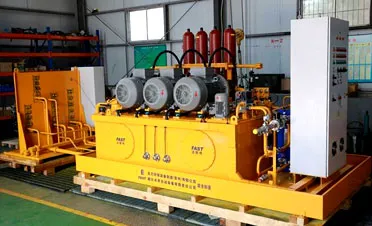aluminum die casting components
Aluminum Die Casting Components Advantages and Applications
Aluminum die casting is a manufacturing process that involves forcing molten aluminum into a mold, which is made from high-quality steel. This method has become increasingly popular due to its ability to produce complex shapes with high accuracy and smooth surface finishes. In this article, we’ll delve into the advantages of aluminum die casting components and their wide-ranging applications across various industries.
Advantages of Aluminum Die Casting
1. Cost-Effectiveness One of the primary benefits of aluminum die casting is its cost-effectiveness, particularly for high-volume production. Once the initial cost of the mold is absorbed, the per-unit production cost decreases significantly, making it economically viable for large runs of components.
2. Precision and Detail Aluminum die casting provides high dimensional accuracy and intricate detail. The manufacturing process allows for thin walls and complex geometries, which are often required in modern products. This precision reduces the need for secondary machining processes, saving both time and money.
3. Lightweight Strength Aluminum is known for its lightweight properties coupled with excellent strength. This combination is particularly beneficial in industries where weight reduction is crucial, such as automotive and aerospace. Components made from aluminum can withstand significant stress while being considerably lighter than those made from heavier metals.
4. Corrosion Resistance Aluminum naturally forms a protective oxide coating when exposed to air, which makes die-cast aluminum components highly resistant to corrosion. This characteristic extends the lifespan of products and reduces maintenance costs, making it a preferred choice in environments prone to moisture and chemical exposure.
5. Thermal and Electrical Conductivity Aluminum is a good conductor of heat and electricity. This property is particularly advantageous for components that require efficient thermal management or electrical conductivity, such as heat sinks or electrical housings.
6. Sustainable Manufacturing Aluminum die casting is an environmentally friendly process. Aluminum is 100% recyclable, and the scrap generated during the die-casting process can be re-melted and reused. Many manufacturers are now incorporating recycling practices into their operations, further enhancing sustainability.
aluminum die casting components

Applications of Aluminum Die Casting
The versatility of aluminum die casting components leads to their application across various sectors
1. Automotive Industry The automotive industry is one of the largest consumers of aluminum die casting components. Parts such as engine blocks, transmission cases, and structural components benefit from aluminum's lightweight yet strong characteristics, contributing to improved fuel efficiency and performance.
2. Aerospace Sector In aerospace, the demand for lightweight materials is critical for enhancing performance and reducing fuel consumption. Aluminum die cast components are used for various applications, including housings, fittings, and even some structural elements of aircraft.
3. Consumer Electronics Many consumer electronic devices rely on aluminum die casting for housings and structural components. The lightweight nature of aluminum helps in creating sleek designs while also providing durability and good heat dissipation.
4. Medical Devices The healthcare sector utilizes aluminum die casting for producing components in medical devices. The precision and reliability required in this field are met with the advantages provided by aluminum die casting, making it suitable for surgical instruments and other critical devices.
5. Industrial Equipment Machinery and equipment often integrate aluminum die-cast parts due to their strength, durability, and lightweight nature, leading to enhanced operational efficiency and reduced energy consumption.
Conclusion
Aluminum die casting components are a vital part of modern manufacturing, offering numerous advantages that enhance product performance, sustainability, and cost-effectiveness. As industries continue to evolve, the demand for precision-engineered aluminum components will likely grow, solidifying aluminum’s position as a material of choice. By leveraging the benefits of aluminum die casting, manufacturers can meet the challenges of modern demands while optimizing their production processes for efficiency and environmental sustainability. Whether in automotive, aerospace, or consumer goods, the impact of aluminum die casting is evident, as it plays a crucial role in shaping the future of various industries.
-
Top Extras Casting Solutions Die Casting and Sand Casting Experts High-Quality Casting and Die Casting ServicesNewsJun.10,2025
-
Top SS Casting Manufacturer Aluminum Die Casting Manufacturer China Precision Die Casting Company SupplierNewsJun.10,2025
-
High-Quality Brass Casting Sand for Precision Sand Casting Brass at HomeNewsJun.10,2025
-
Affordable Aluminum Sand Casting Solutions Custom PartsNewsJun.09,2025
-
High-Quality China Sand Casting Services Cost-Effective & ReliableNewsJun.09,2025
-
Premium Hot Stamping Parts Durable Plastic Decor SolutionsNewsJun.09,2025















